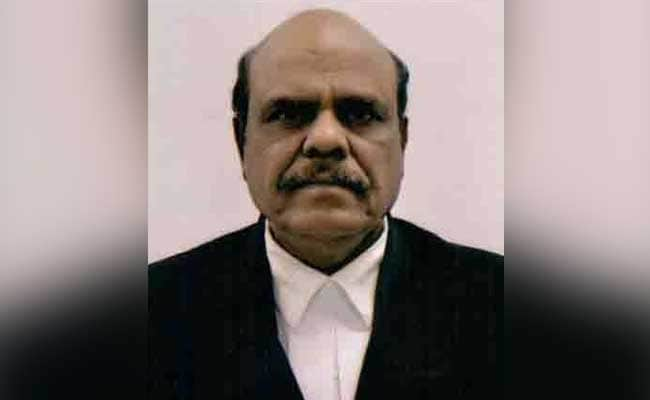
The Supreme Court today slapped a contempt notice on a Calcutta High Court judge, Justice CS Karnan, after the top court decided to initiate the case on its own against the judge for continuously leveling allegations against former and sitting judges. This is the first time that a sitting high court judge faces a contempt case. But Justice Karnan - who was appointed to the bench in 2009 - is not new to controversies. But the last time he got into trouble with the Supreme Court, Justice Karnan was spared after he apologised, attributing his "erroneous" order staying his transfer from the Madras High Court to Calcutta High Court to "mental frustration resulting in loss of mental balance".
Here are the 10 facts on this big legal story:
A seven-member bench of the Supreme Court headed by Chief Justice of India Justice JS Khehar today took up the contempt petition on letters sent out by Justice Karnan hitting out at sitting and retired judges to the top court, Prime Minister and others.
Early in the hearing today, Attorney General Mukul Rohatgi called the communications "slanderous" and "disparaging" to the justice system. The Centre's top law officer said the top court was well within its powers to take judicial note of the letters. "This court has to set an example when it comes to administration of justice," he said.
The Supreme Court agreed but was also conscious of the fact that it had to tread cautiously. "It is the first time we will act against a sitting High Court judge and have to be very careful with what we settle as a precedent for times to come," the bench observed.
Calcutta High Court judge Justice Karnan was appointed an additional judge of the Madras High Court in March 2009. He started making news in just a couple of years of his elevation to the bench, more often than not for pointing fingers at other judges.
Last year, one of the three judges who comprised the high court's collegium, which had recommended his appointment as a judge, went public, apologising for his selection. The other two suggested that impeachment proceedings be initiated against him.
The first controversy was in 2011, when he wrote to the National Commission for Scheduled Castes complaining of harassment and victimisation by other judges because he was a Dalit. He also alleged others were trying to belittle him. By way of an example, he spoke about how another judge, who was also attending a marriage function, crossed his leg so that it touched his.
In June 2013, the judge - while hearing a case - ruled that if a couple of legal age indulged in sexual gratification, it would be considered as a legal marriage and they would be termed as husband and wife. When there was an uproar over the judgment, he passed another order in which he gagged persons from making adverse comments.
The next year, Justice Karnan walked into a court where a Division Bench was hearing a petition on appointment of subordinate judges and announced that he, too, would file an affidavit since the selection was "not fair". The Supreme Court observed that his "unexpected, uncharitable and ungenerous" reaction "made us fume inwardly".
But there was no stopping the judge. In May 2015, Justice Karnan accused the Madras High Court's Chief Justice Sanjay K Kaul of interfering in his judicial work and passed an order relating to appointment of civil judges on Justice Kaul's orders. The Supreme Court had to intervene in this case to restrain Justice Karnan's orders.
In February 2016, Justice Karnan stayed his transfer ordered by the Supreme Court collegium to Calcutta High Court. "I am ashamed to have born in India. I want to move to a country without caste system," he said. When this case reached the Supreme Court, he apologised, attributing his decision to "loss of mental balance".

